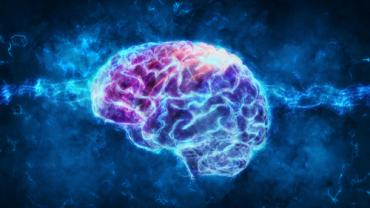
Acetyl L-carnitine is one of the most researched brain nutrients and has been shown to quickly enhance mental focus and energy. It has a similar structure to acetylcholine, and therefore, acetyl L-carnitine can stimulate acetylcholine receptors in the brain. The acetyl group allows it to cross the blood brain barrier, which does not occur with L-carnitine. Acetyl L-carnitine will support the brain as well as do everything else that L-carnitine can.
Major depressive disorder (MDD) can be a challenge to treat from a traditional standpoint due to lack of biomarkers to provide specific treatment. According to a new study published earlier this week, researchers found that acetyl L-carnitine levels are decreased in patients with MDD. In addition, their analysis demonstrated that the degree of the deficiency correlated with both the severity and age of onset of MDD. Furthermore, they showed that the acetyl L-carnitine deficiency was greater in patients who had a history of treatment-resistant depression.
These results suggest that acetyl L-carnitine may be a valuable biomarker to help in the diagnosis of MDD as well as an important therapeutic nutrient to consider.
Last October I shared a review published in Psychosomatic Medicine in which researchers demonstrated that acetyl L-carnitine can significantly reduce depressive symptoms, and an insufficiency of acetyl L-carnitine can play a role in the risk of developing depression, suggesting dysregulation of fatty acids transport across the mitochondria.
In this earlier study, researchers reviewed 12 random controlled trials (RCTs), 11 in which acetyl L-carnitine was a monotherapy. In nine studies, there was a total 791 individuals, 231 treated with acetyl L-carnitine, 216 people treated with placebo and 20 individuals with no intervention. As a result, the analysis showed that acetyl L-carnitine significantly reduced depressive symptoms. The other 3 RCTs compared acetyl L-carnitine to antidepressants, with 162 individuals in each group. Acetyl L-carnitine demonstrated similar effectiveness compared to antidepressants in decreasing depressive symptoms.
Most people associate acetyl L-carnitine with helping to prevent age-related memory decline and slowing Alzheimer's; however, it is also very effective for increasing mental focus, energy, and optimizing brain health. Acetyl L-carnitine increases dopamine, which enhances focus and motivation. Most individuals dose acetyl L-carnitine between 500 mg - 3000 mg a day, depending on the application. This is one of those nutrients individuals feel an increase in focus and energy within about 15 to 20 minutes. There are no side effects and only long term benefits on brain health and function.
Additional brain supportive nutrients to consider include GPC, CDP-choline, Ginkgo biloba, phosphatidylserine, saffron, vitamin B12, folate, and fish oil. GPC and CDP-choline are water soluble forms of choline that can cross the blood brain barrier and support brain health. These help make more acetylcholine and neurotransmitters, as well as phosphatidylcholine in the cell membranes. In addition, phosphatidylserine is an essential nutrient for brain function and is not found in the diet. Research has demonstrated that phosphatidylserine improves depressive symptoms, memory, and behavior.
By Michael Jurgelewicz, DC, DACBN, DCBCN, CNS